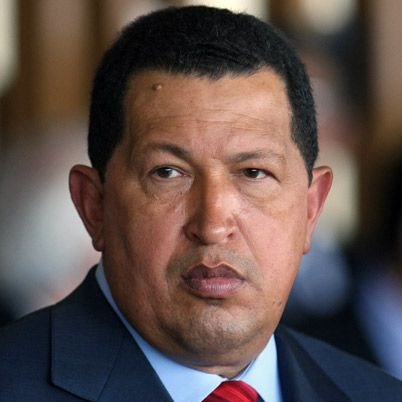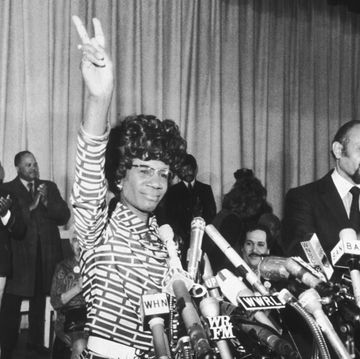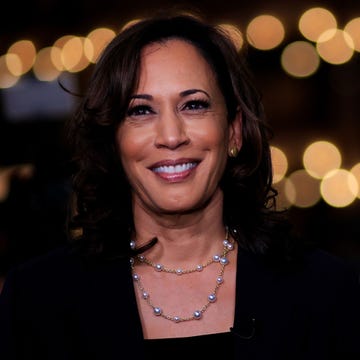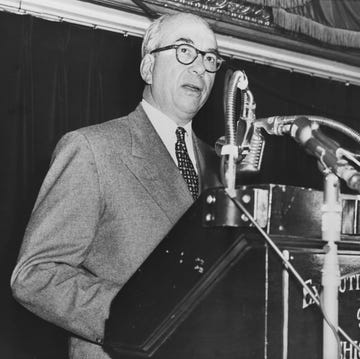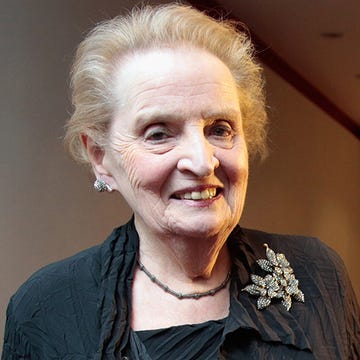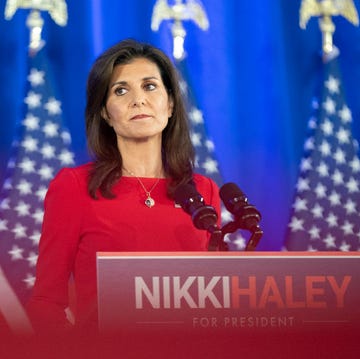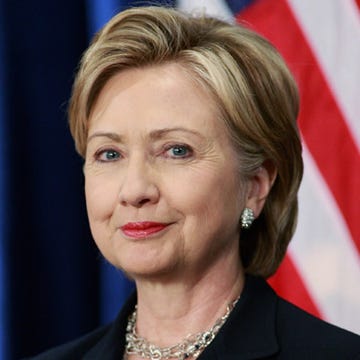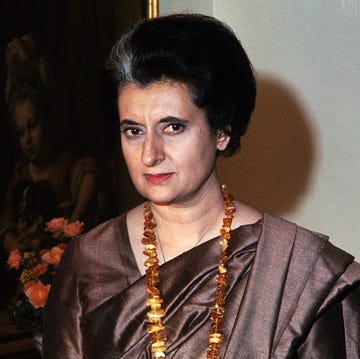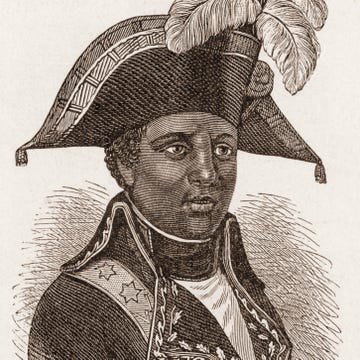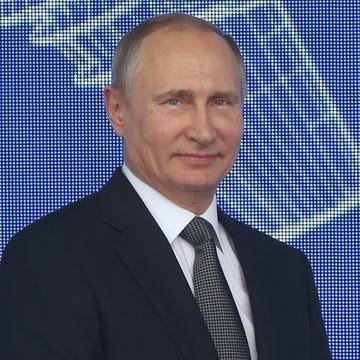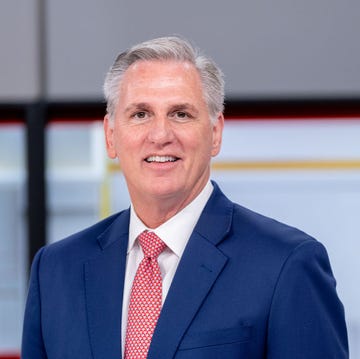(1954-2013)
Who Was Hugo Chávez?
Hugo Chávez attended the Venezuelan military academy and served as an army officer before participating in an effort to overthrow the government in 1992, for which he was sentenced to two years in prison. Chávez became president of Venezuela in 1999. Early into his presidency, he created a new constitution for the country, which included changing its name to the Bolivarian Republic of Venezuela. He later focused his efforts on gaining control of the state-run oil company, which stirred controversy and led to protests, strained relations with the United States and other nations, and Chávez briefly being removed from power. His actions included selling oil to Cuba and resisting efforts to stop narcotic trafficking in Colombia. In 2006, Chávez helped create the Bolivarian Alternative for the Americas, a socialist free-trade organization.
Early Life and Failed Coup Attempt
Born Hugo Rafael Chávez Frías on July 28, 1954, in Sabaneta, Venezuela, Hugo Chávez was the son of schoolteachers. Before becoming known for his reform efforts and strong opinions as president of Venezuela (1999-2013), Chávez attended the Venezuelan Academy of Military Sciences, where he graduated in 1975 with a degree in military arts and science. He went on to serve as an officer in an army paratrooper unit.
In 1992, Chávez, along with other disenchanted members of the military, attempted to overthrow the government of Carlos Andres Perez. The coup failed, and Chávez subsequently spent two years in prison before being pardoned. He then started the Movement of the Fifth Republic, a revolutionary political party. Chávez ran for president in 1998, campaigning against government corruption and promising economic reforms.
Venezuelan President
After taking office in 1999, Chávez set out to change the Venezuelan constitution, amending the powers of congress and the judicial system. As a part of the new constitution, the name of the country was changed to the Bolivarian Republic of Venezuela.
As president, Chávez encountered challenges both at home and abroad. His efforts to tighten his hold on the state-run oil company in 2002 stirred up controversy and led to numerous protests, and he found himself removed from power briefly in April 2002 by military leaders. The protests continued after his return to power, leading to a referendum on whether Chávez should remain president. The referendum vote was held in August 2004, and a majority of voters decided to let Chávez complete his term in office.
Hostility Toward the U.S.
Chávez was known for being outspoken and dogmatic throughout his presidency, refusing to hold back any of his opinions or criticisms. He insulted oil executives, church officials and other world leaders, and was particularly hostile with the United States government, which, he believed, was responsible for the failed 2002 coup against him. Chávez also objected to the war in Iraq, stating his belief that the United States had abused its powers by initiating the military effort. He also called President George W. Bush an evil imperialist.
Relations between the United States and Venezuela have been strained for some time. After taking office, Chávez sold oil to Cuba—a longtime adversary of the United States—and resisted U.S. plans to stop narcotics trafficking in nearby Colombia. He also helped guerrilla forces in neighboring countries. Additionally, during his presidency, Chávez threatened to stop supplying oil to the United States if there was another attempt to remove him from power. He did, however, donate heating oil to help the victims of Hurricane Katrina and Hurricane Rita, which destroyed numerous fuel-processing facilities.
International Collaboration
Regardless of the state of Venezuela's relationship with the United States, while in office, Chávez leveraged his country's oil resources to form connections with other nations, including China and Angola. In 2006, he helped create the Bolivarian Alternative for the Americas, a socialist free-trade organization joined by Fidel Castro, president of Cuba, and Evo Morales, president of Bolivia. Chávez was also an active member of the Non-Aligned Movement, a group of more than 100 countries, including Cuba, Iran and several African nations.
Declining Health and Death
Chávez discovered that he had cancer in June 2011, following a surgery to remove a pelvic abscess, and from 2011 to early 2012, he underwent three surgeries to remove cancerous tumors.
Prior to his third surgery, in February 2012, Chávez acknowledged the severity of the operation as well as the possibility of not being able to continue his service as president, and subsequently named Venezuelan Vice President Nicolas Maduro as his successor. Due to his declinging health, Chávez was prevented from being inaugurated for a fourth term in January 2013.
Following his years-long battle with cancer, Hugo Chávez died on March 5, 2013, at age 58, in Venezuela. He was survived by his wife, Maria Isabel Rodriguez, and five children: Rosines, María Gabriela, Rosa Virginia and Hugo Rafael. Two days after Chavez's death, Vice President Maduro announced that Chavez's body would be preserved and permanently displayed inside a glass tomb now under construction in a Caracas museum. The site, located not far from the palace where Chavez ruled for more than a decade, has been called el Museo Histórico Militar de Caracas.
Related Videos
QUICK FACTS
- Name: Hugo Chavez
- Birth Year: 1954
- Birth date: July 28, 1954
- Birth City: Sabaneta
- Birth Country: Venezuela
- Gender: Male
- Best Known For: Hugo Chávez served as president of Venezuela from 1999 until his death in 2013. During his presidency, he sold oil to Cuba and resisted efforts to stop narcotic trafficking in Colombia, and subsequently strained relations with the United States.
- Industries
- World Politics
- War and Militaries
- Astrological Sign: Leo
- Schools
- Venezuelan Academy of Military Sciences
- Nacionalities
- Venezuelan (Venezuela)
- Death Year: 2013
- Death date: March 5, 2013
- Death Country: Venezuela
Fact Check
We strive for accuracy and fairness.If you see something that doesn't look right,contact us!
CITATION INFORMATION
- Article Title: Hugo Chávez Biography
- Author: Biography.com Editors
- Website Name: The Biography.com website
- Url: https://www.biography.com/political-figures/hugo-chavez
- Access Date:
- Publisher: A&E; Television Networks
- Last Updated: October 6, 2020
- Original Published Date: April 2, 2014
QUOTES
- The left is back, and it's the only path we have to get out of the spot to which the right has sunken us. Socialism builds and capitalism destroys.
